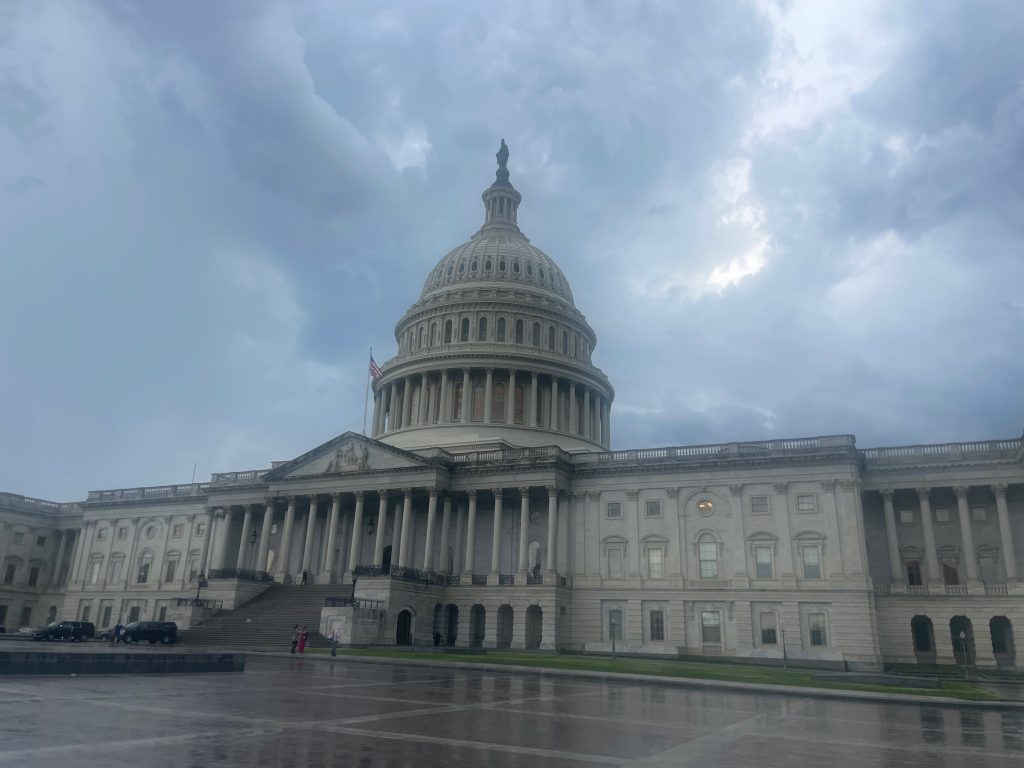In August 2024, a multidisciplinary team of policy researchers, postdoctoral fellows and developers from the Digital Economy Lab (DEL) in the Stanford Institute for Human-Centered Artificial Intelligence (HAI) partnered with the MIT GOV/LAB to create an online platform called DELiberationIO. In July, DELiberationIO was deployed in Washington, D.C. city proceedings.
The platform is designed to facilitate productive discussion and deliberation using conversational AI that engages in a Socratic dialogue with the user. Its ultimate goal is to drive more effective decision-making and develop actionable solutions in high-stakes contexts, such as public policy.
Jiaxin Pei, a DEL postdoctoral fellow integrating AI and evaluating the platform, articulated the overarching question that the DELiberationIO team seeks to tackle: “Can we have AI help moderate or facilitate conversations among 100, 200, 300 or even more people?”
After initially deploying DELiberationIO and testing the platform with online experiments, the team announced their collaboration with Washington D.C.’s Office of the Chief Technology Officer (OCTO) on July 1. On July 15, the partnership incorporated the platform into the Washington D.C. AI Public Listening Session — a town hall meeting focused on enhancing the government’s use of AI to better serve the American public.
According to OCTO, the main conclusion of the session was that citizens want AI to facilitate their interactions with the government.
Alex “Sandy” Pentland, a center fellow at DEL who serves as the faculty lead for the project, explained that the aim of the town hall pilot study was “to get people’s opinions but also to get them to understand what’s possible and what’s not possible [with AI]. And, from those experiences, we will be able to design better and better platforms.”
DELiberationIO’s presence in D.C. began in March when the team launched in-person and online deliberations for citizens to discuss the use of AI in educational settings. “The D.C. government has high priorities on tech but doesn’t know how the public feels,” said José Ramón Enríquez, the DEL postdoctoral fellow leading the project.
During the platform’s development, the team defined four main components — a user-only part where individuals engage with the topic on their own; a user-AI agent interaction that prompts reflection; a “Face of the Crowd” view displaying the distribution of other users’ opinions; and “Dynamic Deliberation,” where the AI agent generates follow-up questions to maintain the progression, quality and inclusivity of the discussion.
“When we have an AI moderator that generates the consensus statement and next round discussion questions, we see that the final petition created by both groups is overwhelmingly [positive],” Pei said. “This suggests that AI facilitation can help to produce higher quality results in large group deliberations.”
The team ultimately aims to impact three segments of society with its platform: governments, communities and individuals. “[The platform] helps the government to better understand what people really want. Sometimes, it’s really hard to predict what issues people actually care about,” Pei added.
During a time of heightened polarization, the platform also seeks to connect individuals with diverse political views.
“An online platform like DELiberationIO is certainly aiming to get the real face of the crowd from everyone, including the people that might be on opposite ends of the spectrum but also all of the people far and wide in between,” said Umar Patel B.S./B.A. ’23, M.S. ’24, a DEL research developer on the team. “When you have that holistic view, people get an understanding that an issue is not just black and white.”
Looking ahead, the DEL team will continue to experiment with, refine and expand DELiberationIO. The team plans to conduct another pilot with D.C. in October, while also collaborating with other groups and cities, both domestically and internationally.
“We’re hoping to do more research with actual relevant policy issues, so that [the discussions] feel like they have more stakes,” said Lula Chen, research director of the MIT GOV/LAB and principal coordinator of the partnership with the D.C. government. “Our platform is very much in the building stage. We want to make it actually useful and accessible and both good for policy and research. We’re definitely open to changes.”
Although the platform is currently used for political deliberation, the team seeks to apply the framework to other industries, such as business and education.
The team also envisions integrating the platform into society by creating a lightweight mobile application to house the platform.
“[By] making it open source … anyone can have access to it, add whatever topic they want to deliberate, invite their friends and then use this technology for social good, particularly in low-resource contexts,” Enríquez said.
As the platform continues to evolve, the team emphasizes the importance of idea-sharing across institutions.
“My view is that it shouldn’t just be Stanford, it should be other universities as well, collaborating and thinking about it,” Pentland stated. “What we’re trying to do is have a much more collaborative, networked world.”

